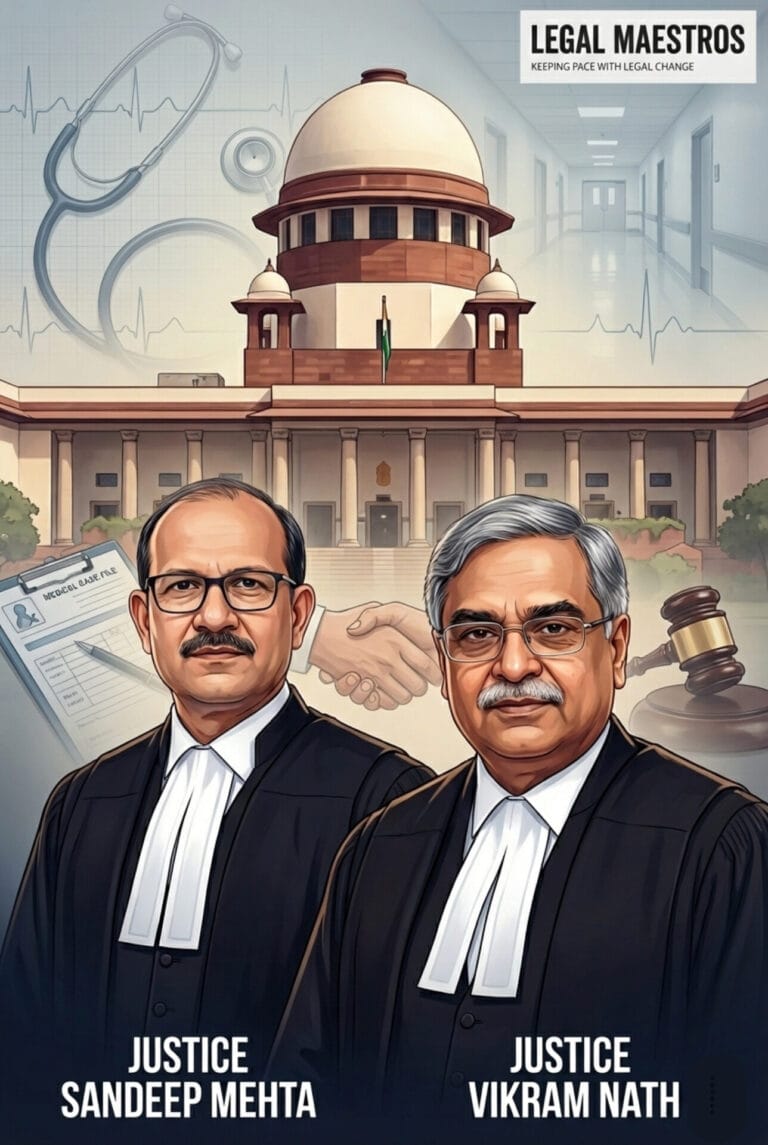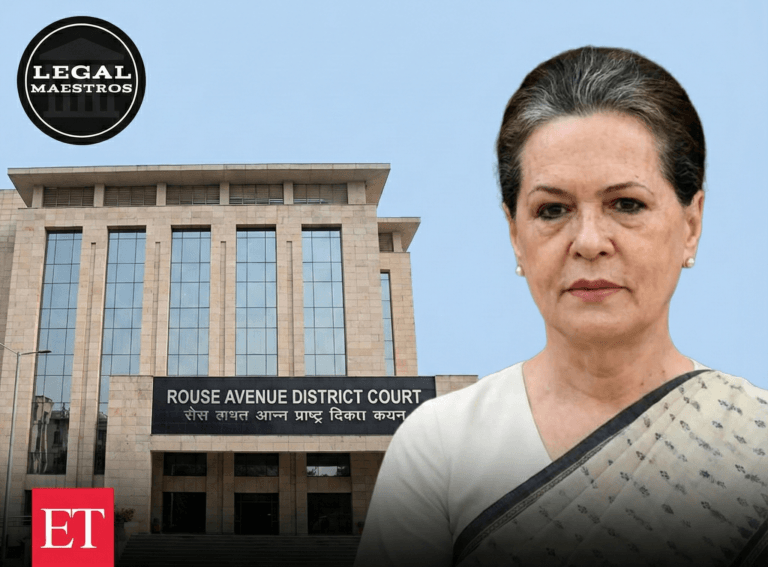
Justices Sudhanshu Dhulia and K. Vinod Chandran Uphold Legality of Tribal Land Sale: A Landmark Ruling on Section 165 of the M.P. Land Revenue Code
Intro
Clarifying the legal framework around land transfers by members of Scheduled Tribes under the Madhya Pradesh Land Revenue Code, 1959, the Supreme Court of India rendered a significant ruling in *The State of Madhya Pradesh vs. Dinesh Kumar and Others*, on April 8, 2025. Key questions of jurisdiction, tribal rights, administrative competence, and the restriction of revisional powers under Section 50 of the Code the Court addressed. Authorized by Justice K. Vinod Chandran and confirmed by Justice Sudhanshu Dhulia, the ruling clarifies the authorities of tax officials and the protections included into tribal land transfers.
Background and Facts of the Case
The conflict started when indigenous tribe members sold the respondent, Dinesh Kumar, some of their agricultural land. Though not within territories formally designated as Scheduled territories under the Fifth Schedule of the Constitution, the land was in Ratlam District, Madhya Pradesh. Under Section 165(6) of the M.P. Land Revenue Code, the Additional Collector approved for the sale on March 21, 2018 March 26, 2018 saw the completion of the deal via a registered sale deed.
Under Section 50 of the Code, the Commissioner of Ujjain Division later on September 14, 2021 set aside this sale using suo motu revisional powers. The Commissioner said that there was non-compliance with Section 165(6-c) and that the Additional Collector lacked power to provide such approval. The High Court overturned the Commissioner’s ruling, which prompted the State to seek appeal to the Supreme Court.
For any queries or to publish an article or post or advertisement on our platform, do call at +91 6377460764 or email us at contact@legalmaestros.com.
salient Features Involved
Section 165(6) of the Madhya Pradesh Land Revenue Code, 1959 was the main legislative measure under dispute. This part controls the sale of land belonging to Scheduled Tribes. This calls for:
Should the land fall under a Scheduled Area, it cannot be transferred to a non-tribal entity. Should the land lie outside a Scheduled Area, it could be moved only with written approval from a revenue officer not ranking below Collector.
Section 165(6-c), which details elements a Collector must take into account while issuing such permission, was another pertinent clause. These cover whether the deal is sincere, if the price is reasonable, whether the land will be utilized responsibly, and whether it benefits tribal seller social or financial interests.
Section 50 of the Code gives higher authorities such as the Commissioner evaluation of subordinate orders revisional powers. But in the *Ranveer Singh* case, the Madhya Pradesh High Court decided that such powers have to be used 180 days following knowledge of the order.
Basic Legal Problems Before the Court
The lawsuit revolved on four main issues. First, under Section 165(6), was the Additional Collector legally empowered to grant permission? Second, whether the permit issuance followed the guidelines set down in Section 165(6-c). Third, was the transaction legitimate rather than a benami or sham one? Fourth, beyond the 180-day restriction period, may the Commissioner authorize a revisional order?
Reversals on Jurisdiction and Authority
Under Section 165(6), the State said only the District Collector—not an Additional Collector—could provide approval. The Supreme Court discounted this case. It discovered that under a general order dated May 19, 2017, the Additional Collector who provided the license was formally authorised to wield such powers. Section 11 of the Code recognizes Additional Collectors as part of the designated revenue authorities, hence this transfer of power was legitimate.
The Court decided thus that the Additional Collector had the jurisdiction to handle and provide the permission to sell the ground.
Study of Section 165(6-c) Compliance
Furthermore alleged by the State was the Additional Collector’s noncompliance with Section 165(6-c’s criteria. Before sanctioning a transaction, this part requires due attention by the authority. Whether the buyer will use the land suitably, whether the tribal seller will suffer socially or economically, whether the transaction is benami, and whether the price is fair—all of which depend on whether the land is in a scheduled area.
All sides agreed when the Supreme Court pointed out that the site was not covered by a Scheduled Area. Selling the land for Rs. 45 lakhs, well above the government-published market value of Rs. 38.31 lakhs, As mandated under Section 165(6-ee), the buyer additionally promised to use the land just for agricultural purposes for at least ten years. The deal turned out not to be benami or phoney. The sales were supported by the Tehsildar’s report and the Village Patwari’s confirmation; the whole procedure was open and thoroughly recorded.
Though Section 165(6-a) and Section 165(6-b) were essentially relevant to other sub-sections, the Court decided that there was no breach of the conditions under Section 165(6-c). It nonetheless closely looked at the circumstances and discovered complete conformity.
Consideration of Limitation on Revisional Powers
The timing of the Commissioner’s suo motu revisional ruling proved to be crucial for the case. Referring to the Full Bench ruling of the Madhya Pradesh High Court in the *Ranveer Singh* case, which had obviously set a 180-day restriction for using such revisional powers, the Supreme Court noted In this instance, the collector referred the matter in October 2018 while the sale license was approved in March 2018. Nevertheless, the Commissioner approved the final revisional decision in September 2021 much beyond the 180-day period.
The Supreme Court noted the delay and noted that the revisional authority had been improperly used in this regard even if it did not dismiss the appeal depending just on the limitation issue.
Result and Influence of the Decision
The Supreme Court maintained the High Court’s ruling, therefore verifying the validity of the tribal land purchase. The State rejected their appeal. The Court stressed that there is no justification to undo such property transactions where appropriate procedures are followed, approvals are obtained by competent officials, and the transaction benefits the tribal landowners without exploitation.





